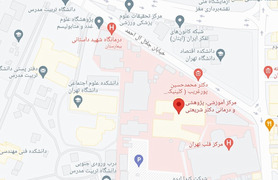Genetic association analysis of TCF7L2 common variants with type 2 diabetes risk within the Bushehr Elderly Health BEH program
The present study aims to investigate the allele and genotype frequencies of common TCF7L2 polymorphisms and their associations with T2DM in an elderly Iranian population.

Type 2 diabetes mellitus (T2DM) is influenced by both genetic and environmental factors. Transcription factor 7-like 2 (TCF7L2) variants strongly linked to T2DM risk across diverse populations. The present study aims to investigate the allele and genotype frequencies of common TCF7L2 polymorphisms and their associations with T2DM in an elderly Iranian population.
Methods
We analyzed data from 2,192 adults aged ≥ 60 in the Bushehr Elderly Health (BEH) Program. TCF7L2 single nuclotide polymorphisms (SNPs) were genotyped using the Illumina GSA array. After quality control, Generalized Linear Models assessed associations with T2DM, adjusting for age and sex. Allele and genotype frequencies were compared between diabetic and non-diabetic groups.
Results
Among 2192 elderly participants, 34% had T2DM, with a mean age of 69.3 years. TCF7L2 gene variants were investigated under additive, dominant, and recessive models. Four SNPs, rs7903146-T, rs34872471-C, rs35198068-C, and rs4506565-T showed the most robust significant associations with T2DM. Under the additive model, ORs ranged from 1.40 to 1.42 (PFDR=3.01E-05). In dominant model ORs ranged from 1.49 to 1.52 with PFDR=0.002. In recessive model ORs ranged from 1.69 to 1.71 with PFDR=0.002. Risk homozygotes were more frequent in diabetic participants: rs7903146-TT (18.3% vs. 11.6%), rs34872471-CC (18.1% vs. 11.5%), rs35198068 CC (18.3% vs. 11.6%), and rs4506565 TT (18.8% vs. 12%).
Conclusion
This study highlights the significant role of TCF7L2 polymorphisms especially rs7903146 and related intronic variants in increasing T2DM risk among elderly Iranians.
.png)


.jpg)

ارسال نظر